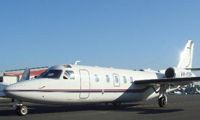
In a scathingly critical report (PDF) of Australian safety investigators and regulators, the Australian Senate last week found that an investigation into the 2009 ditching of a medical evacuation flight off Norfolk Island was so incompetently handled that it could be referred to authorities for criminal prosecution. The Senate investigation, which began last September, found that during the crash investigation, Australia’s Civil Aviation Safety Authority failed to provide the Australian Transport Safety Board with critical documents and findings concerning the Pel-Air ditching. That information would have revealed, according to the Senate probe, that CASA knew of ongoing systemic shortcomings in Pel-Air’s operation that directly contributed to the accident. CASA’s action, says the Senate report, may have violated Australia’s Transport Safety Investigations Act. “It could be seen as a breach of the Transport Safety Act in terms of obstructing an investigation,” said Sen. David Fawcett.
The accident occurred in November 2009 when the twin-engine Westwind ditched off Norfolk Island en route from Samoa with a critical but stable patient. The Westwind’s ultimate destination was Melbourne, with a scheduled fuel stop in Norfolk Island. The flight’s captain, Dominic James, departed with legally sufficient fuel into a forecast of good VFR. En route, the Norfolk Island weather tanked and after three unsuccessful approach attempts, James ditched the Westwind near the island. All six aboard survived, albeit some with injuries. The ATSB’s accident investigation, which took some 1000 days to complete, faulted the crew for not planning the flight in accordance with Australian regulation and Pel-Air operations specifications. It blamed James for not aggressively seeking updated weather reports and for failing to divert to Noumea, New Caledonia, which the Westwind initially had fuel to do.
Following the ATSB’s findings, James challenged some of the investigator’s findings but his queries were dismissed by the ATSB. The Australian Senate took up James’ case last year and its probe revealed widespread flaws in the ATSB’s investigatory work. Among numerous findings by the Senate was a report on a CASA review of Pel-Air that “unequivocally concluded … that the Pel-Air Westwind operation was at an elevated risk and warranted more frequent and intensive surveillance and intervention strategies.” Yet no mention of this report appeared in the ATSB’s findings blaming the pilot. “In other words, Pel-Air was lacking, CASA’s oversight of Pel-Air was lacking, and the accident occurred in an environment of serious aviation safety deficiencies,” the Senate report said.
Although the Senate investigation stops short of saying the ATSB and CASA colluded to suppress information, it does conclude that the two agencies narrowed the accident investigation focus in a way that excluded larger safety issues. “This inquiry has shaken my confidence in the CASA and the ATSB to the core. I no longer have confidence in them. That’s why I think we need an inspector general of aviation,” Sen. Nick Xenophone told Australia’s ABC News. “This goes beyond Dominic James, which I regard and many regard as a scapegoat for the failings of CASA and the ATSB,” he added.
The Senate report makes numerous recommendations to improve the ATSB investigation process, ranging from additional training for investigators, to requiring the ATSB’s chief commissioner to have extensive aviation safety experience, to establishing an oversight board for investigations. In one of its sub-conclusion, the Senate pulled no punches in criticizing CASA. “CASA’s internal reports indicate that the deficiencies identified would have had an effect on the outcome of the accident in several areas. It is inexplicable therefore that CASA should so strongly and publicly reject witnesses’ evidence that they did not think surveillance was adequate, when CASA’s own internal investigations indicate that CASA’s oversight was inadequate,” the report said.


































